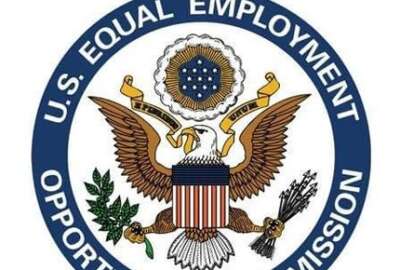The Federal Labor Relations Authority will move forward with controversial plans to allow dues-paying employees to cancel automatic payments to their unions at any time, rather than the once annual window they have now.
The decision stems from a request made by the Office of Personnel Management, which asked the authority to review how the 2018 Supreme Court decision, Janus v. AFSCME Council 31, might apply to existing policies on federal employees and their union dues.
Under Janus, the Supreme Court determined requiring public sector employees to pay union dues was a violation of their First Amendment rights. The decision was mostly seen as a blow for state and local public sector employees. Federal employees who are a part of a bargaining unit don’t have to become dues-paying members unless they want to.
But OPM asked for clarity from the FLRA on this topic, questioning whether the decades-old policy conflicts with the Janus decision and violates federal employees’ First Amendment rights.
Now with the FLRA’s recent 2-1 decision, employees will be able to revoke federal union dues payments at any point during the year, as long as they’ve been in the bargaining unit for a year.
Central to the FLRA’s debate were provisions in the Federal Service Labor-Management Relations Statute, which allow agencies to accept “assignments” from dues-paying bargaining unit members. These employees can elect to have their agencies automatically deduct federal union dues from the paychecks.
The provision further explains, with some exceptions, “any such assignment may not be revoked for a period of one year.”
Under previous FLRA interpretation, that means federal employees generally had one opportunity a year to cancel these automatic payments to their union.
But the authority said it disagrees with that interpretation. The labor-management relations statute simply requires a bargaining unit member to have been on board for one year before making federal union dues changes, the FLRA argued.
“In fact, the authority made a policy judgment to impose annual revocation periods after the first year of an assignment,” Colleen Duffy Kiko, FLRA chairman, wrote in Feb. 14 decision. “In other words, notwithstanding previous assertions otherwise, [the statute] neither compels, nor even supports, the existing policy on annual revocation windows. Because it remains our privilege and responsibility to interpret the statute in a manner that is consistent with an efficient and effective government, we cannot allow our decisions or statements to merely rubber-stamp what was said in the past.”
Pieces of the 39-year-old policy will be reversed after appropriate notice-and-comment rulemaking, the FLRA said last week, though the authority won’t adopt OPM’s proposed policy changes in full.
“The regulation will be designed to further important policies underlying the statute, such as robustly protecting employees’ rights and freedoms, and guarding unions’ institutional interests in a clear and effective procedure for collecting dues,” the FLRA decision reads. “Nevertheless, we recognize that the interests of bargaining‑unit employees and unions are not one and the same when employees want to discontinue financial support to unions by stopping dues payments.”
The National Treasury Employees Union will challenge the FLRA’s decision in the U.S. Court of Appeals for the District of Columbia Circuit. The union filed its petition Tuesday in court.
“There is only one reason to change one-year dues collection agreements and that is to try and harm unions,” Tony Reardon, NTEU national president, said Tuesday. “This action reveals in stark terms just how determined the administration is to roll back the rights and benefits of federal employees.”
The lone Democratic member on the authority, Ernest DuBester, argued the authority’s decision fundamentally contradicts the “principles and purposes” of the labor-management relations statue, as well as several years of FLRA precedent.
“The majority’s decision today constitutes the sort of judicial activism that is squarely inconsistent with the authority’s decision-making responsibilities under our statute,” DuBester wrote. “The request for a policy statement ostensibly giving rise to the majority’s decision relies upon a Supreme Court decision that, by its own terms, has nothing to do with federal-sector labor relations. Nevertheless, the majority seizes this fabricated opportunity to reverse the authority’s well-reasoned precedent.”
The American Federation of Government offered similar criticism.
“The authority’s decision is just another step toward the administration’s goal of busting unions and making it even harder for rank-and-file federal employees to speak up, defend their rights and serve the American people,” Everett Kelley, AFGE national secretary-treasurer, said Tuesday in a statement. “This merit-less decision flies in the faces of decades of settled and well-reasoned legal precedent in an activist effort to divide federal employees from their unions.”
Copyright
© 2024 Federal News Network. All rights reserved. This website is not intended for users located within the European Economic Area.

